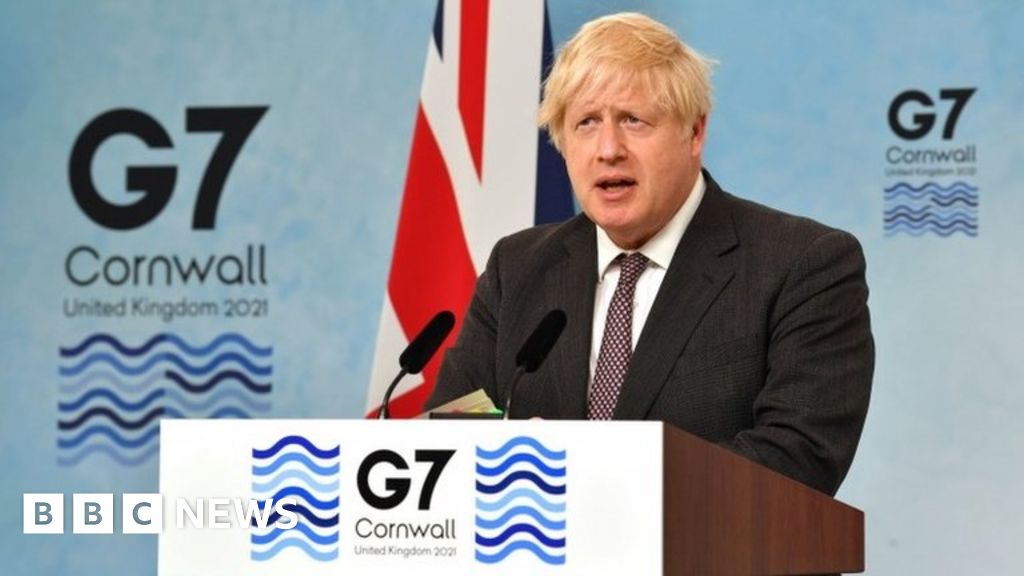 G7: World leaders promise one billion Covid vaccine doses for poorer nations PM Boris Johnson rejects criticism the donation is not enough, saying "we are going flat out". BBC News
G7: World leaders promise one billion Covid vaccine doses for poorer nations PM Boris Johnson rejects criticism the donation is not enough, saying "we are going flat out". BBC News Leaders of the major industrial nations have pledged one billion Covid vaccine doses to poor countries as a "big step towards vaccinating the world", Boris Johnson has said.
At the end of the G7 summit in Cornwall, the PM said countries were rejecting "nationalistic approaches".
He said vaccinating the world would show the benefits of the G7's democratic values.
There was also a pledge to wipe out their contribution to climate change.
After the first meeting of world leaders in two years, Mr Johnson said "the world was looking to us to reject some of the selfish, nationalistic approaches that marred the initial global response to the pandemic and to channel all our diplomatic, economic and scientific might to defeating Covid for good".
He said the G7 leaders had pledged to supply the vaccines to poor countries either directly or through the World Health Organization's Covax scheme - including 100 million from the UK.
The communique issued by the summit pledges to "end the pandemic and prepare for the future by driving an intensified international effort, starting immediately, to vaccinate the world by getting as many safe vaccines to as many people as possible as fast as possible". ...
Mr Johnson rejected suggestions the vaccines pledge was a moral failure by the G7 as it was not enough to cover the needs of poorer countries. ...
"Already of the 1.5 billion vaccines that have been distributed around the world, I think that people in this country should be very proud that half a billion of them are as a result of the actions taken by the UK government in doing that deal with the Oxford scientists and AstraZeneca to distribute it at cost," he said.
Elsewhere in their communique, G7 leaders also pledged to:
- improve early warning systems to prepare for future health crises
- phase out coal-fired power stations without carbon capture technology and raise $100bn (£70bn) to help poorer countries cut emissions
- support a green revolution that creates jobs, cuts emissions and seeks to limit the rise in global temperatures to 1.5 degrees
- reinvigorate their economies "with plans that create jobs, invest in infrastructure, drive innovation, support people, and level up so that no place or person, irrespective of age, ethnicity or gender is left behind"
- "build back better" by establishing a clean, green growth fund for infrastructure developments in developing countries
- respond to China's impact on world trade and challenge practices which "undermine the fair and transparent operation of the global economy"
- call on China to respect human rights, especially in relation to Xinjiang, where it has been accused of abuses against Uyghur Muslims
- get 40 million more girls into education by 2026. ...
ALSO SEE: G-7 leaders agree on vaccines, China and taxing corporations

